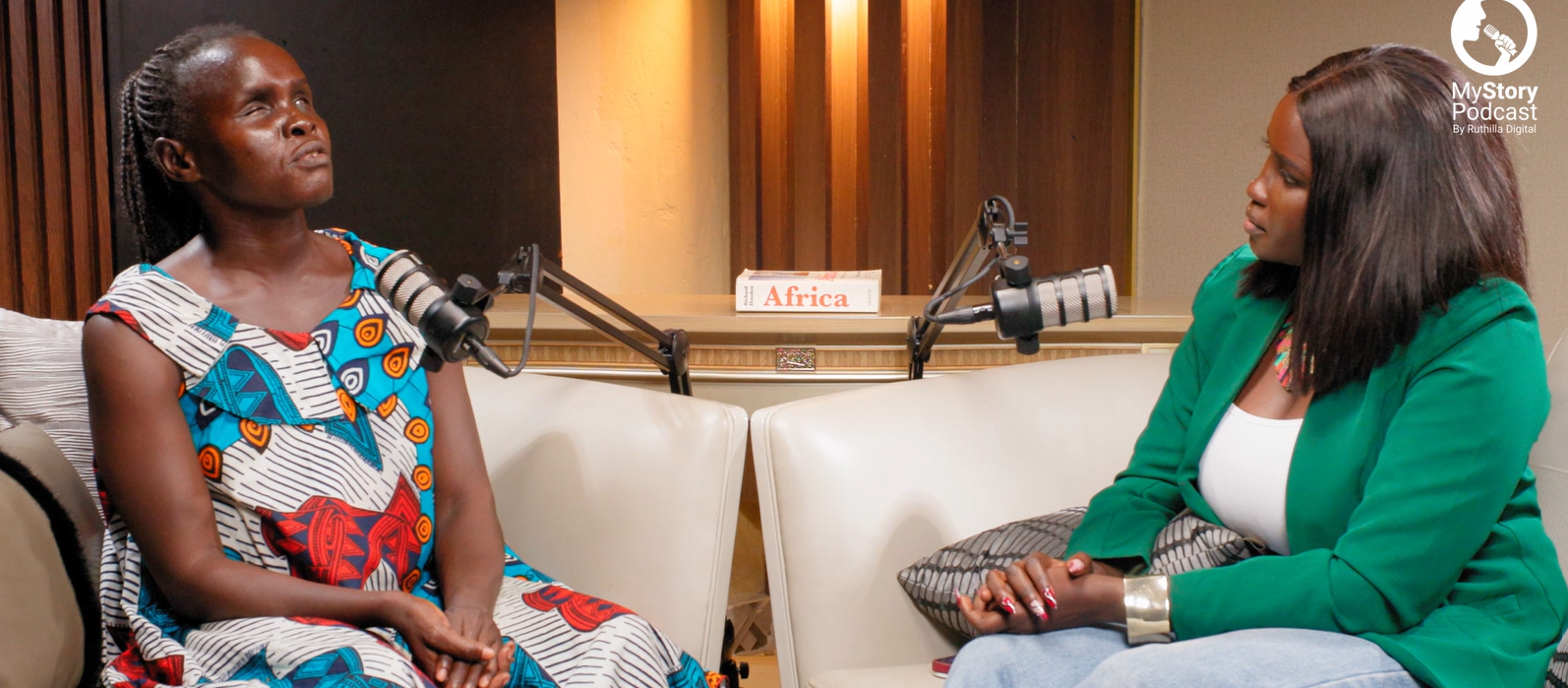Persons LIVING with disability call for inclusive education
Zakiah Musa Ahmed appeals for inclusive education to Persons Living with Disability in South Sudan.
A right activist champion has voiced the frustration and hope of many Persons with Disabilities in South Sudan, urging education stakeholders to foster inclusive learning spaces where every learner—regardless of ability—feels seen, supported, and empowered to succeed.
Zakiah Ahmed Mousa, a human rights advocate for persons with disability said that students with visual impairment in South Sudan are often subjected to untold discrimination when sitting for examinations.
Speaking on “MYSTORY” — a weekly podcast prooduced by Ruthilla Digital, Zakiah cited lack of proper materials during national examinations like Senior 4 and Primary 8 Exams which she claims often leads to tilted outcomes which eventually impedes the potential of people living with disability.
“Until today, if you are sitting primary eight or Senior Four exams, as a visual impairment student, you have to sit orally. It's not supposed to be like that. The examination is supposed to come in question here and the student should be able to read questions for him or herself using braille. But that is not the case because there are no brailed exams for visually impaired students sitting national examinations in South Sudan,” said Zakiah, who is also a psychology teacher.
South Sudan has been making some strides in strengthening the rights of persons living with disabilities.
On Feb. 21, 2023, Juba ratified the U.N. Convention on the Rights of Persons with Disabilities.
The UN Convention ensures equal rights for persons living disabilities and supports societal reintegration for the same group of people.
Right activist Zakiah Musa Ahmed while appearing on “MY STORY” podcast says South Sudan still lacks education infrastructure like dearth of enough teachers for sign language, for Persons Living With Disability.
While Zakiah acknowledges these achievements she says implementation remains a challenge.
“The Convention guaranteed the rights of persons with disabilities because persons with disabilities are subjected to more violence and abuses. GBV (gender-based violence) cases are almost doubled for PWD and nobody seems to understand their issues.
“Look at examinations, for example –the examinations for visually impaired students are not brailed. What we have is where a student will have someone reading for him/her the questions, he says that answer then it is written down to her… this is not inclusive education. It is an alternative for persons with disabilities to learn.
The Persons with Disability National Act (2017) defines a person with disabilities as "any person who was born or sustained a deficiency that partially or totally affected his physical, mental or sensory capacity permanently that may completely prevent him from dealing with various barriers".
The act ensures the state will take the "necessary measures to facilitate the access of persons with disability to buildings, roads, transport means and other facilities".
Zakiah lost her sight before age one due to a mysterious illness. Despite the challenges, she earned a university degree and now works as a teacher and advocate for the rights of persons with disabilities, especially women and girls.
She envisions a South Sudan where the public is well-informed about the rights of persons with disabilities and where inclusive policies are implemented to create a more supportive and enabling environment for the group.
“When it comes to the government, of course, this is their responsibility. We need legal frameworks to compel every one building a house to make sure that building and other infrastructure factor Persons with disability in mind in terms of accessibility.
It was also to provide means of facilities in the engineering designs of buildings that enable persons with disability to access electronic services and to use renewable technological information.
“Government also needs to engage organizations of persons with disabilities because they (organizations of persons with disabilities) are the very people who can tell you the barriers that they are facing.
Of equal concern to Zakiah is the few number of certified sign language interpreters in the country.
“We don’t even teach sign language in schools. We have few sign language teachers because we don’t train them,” she added.
South Sudan has yet to ratify the CRPD Act.
WATCH FULL INTERVIEW HERE: https://bit.ly/4mlnHk8



